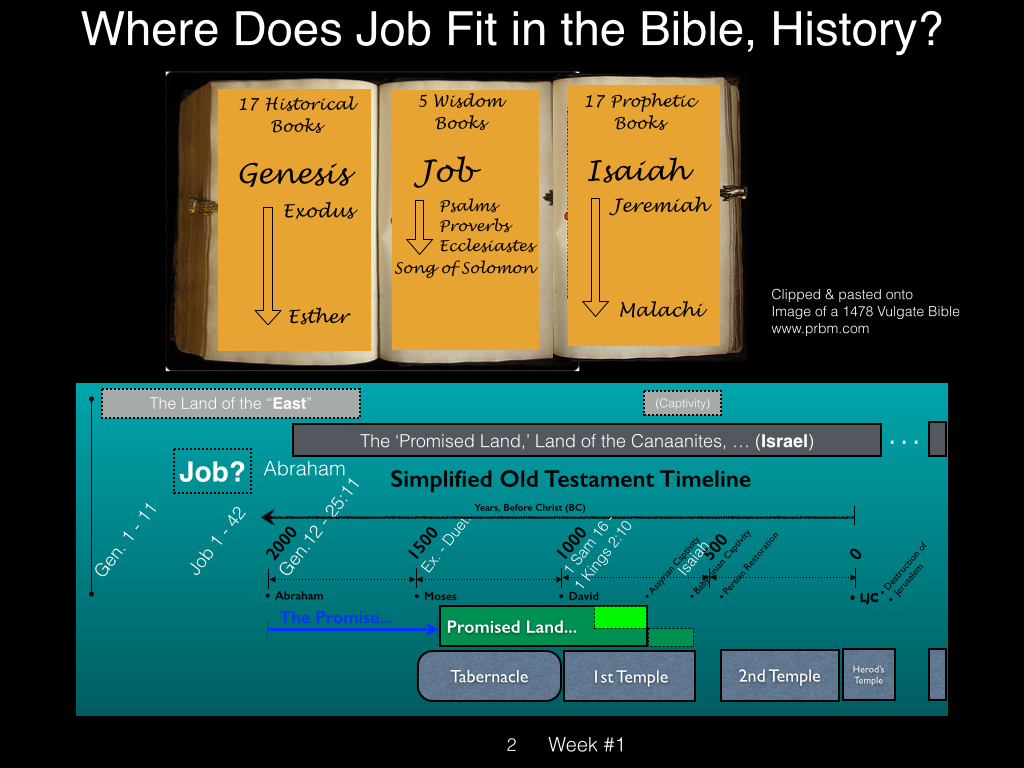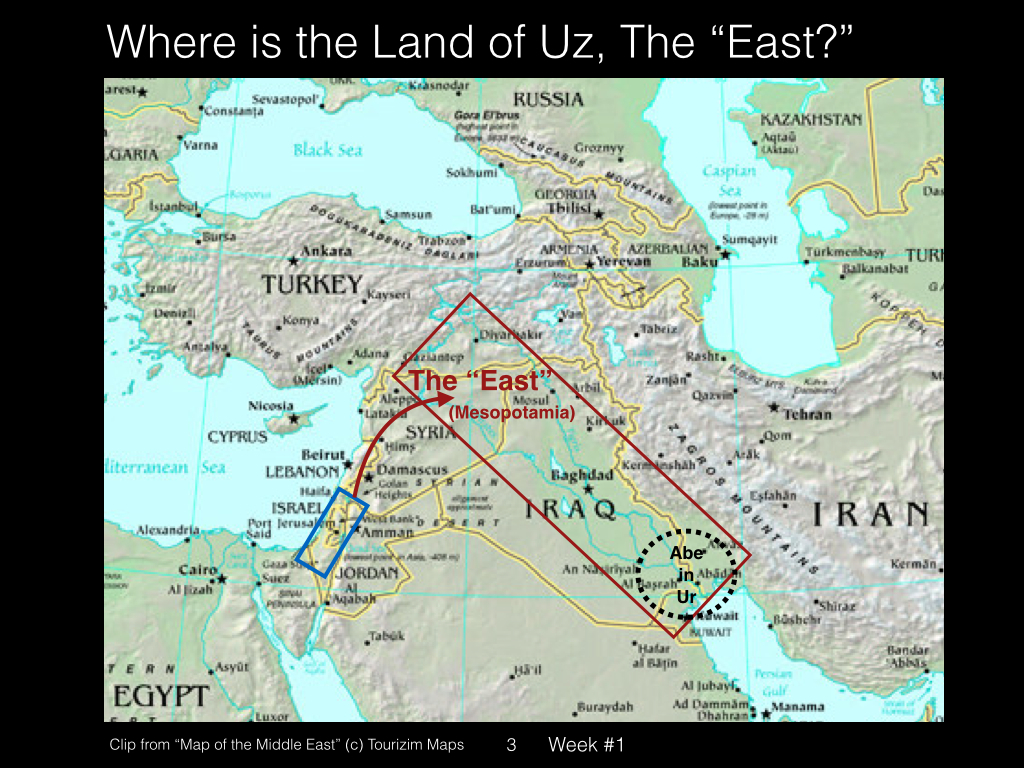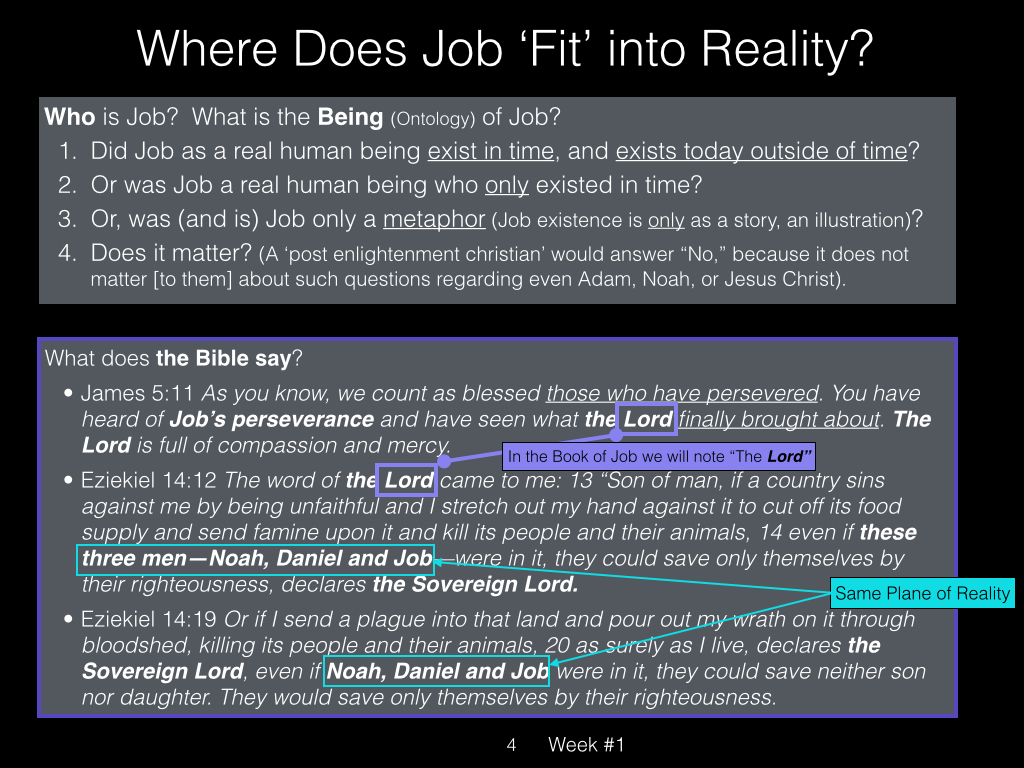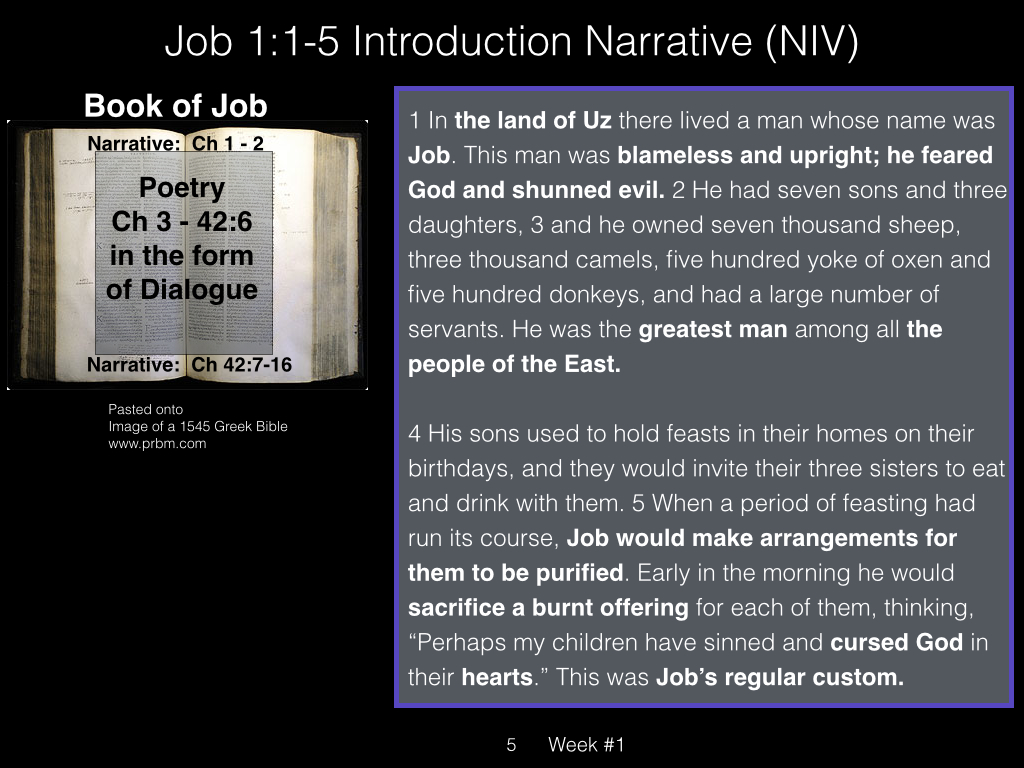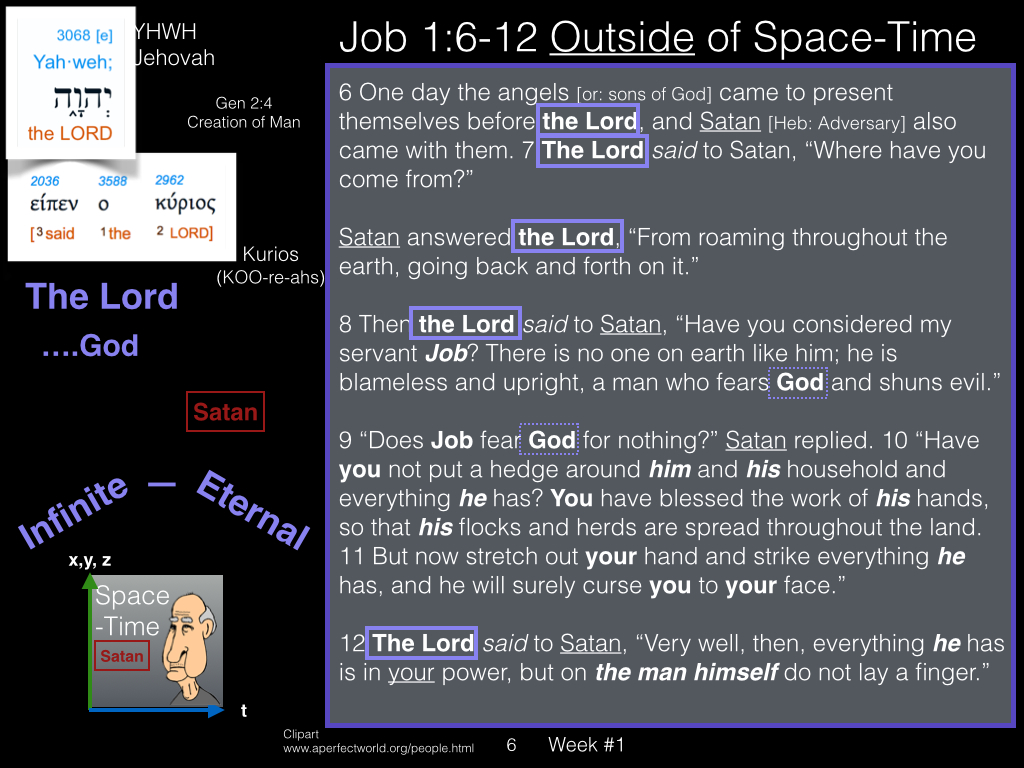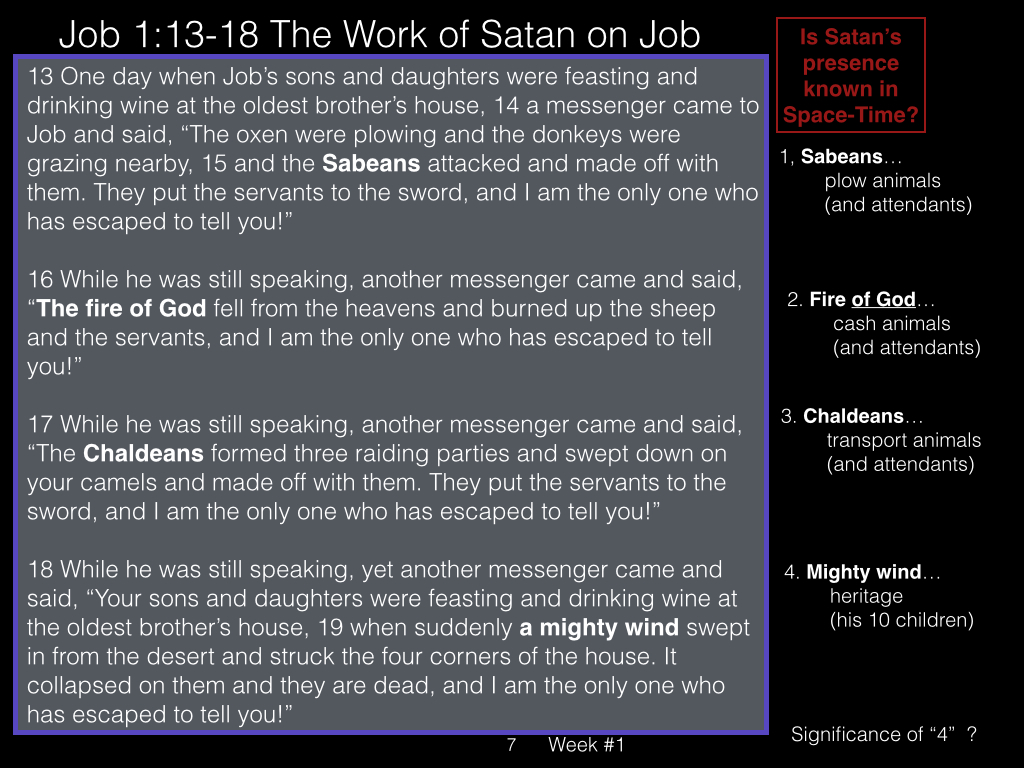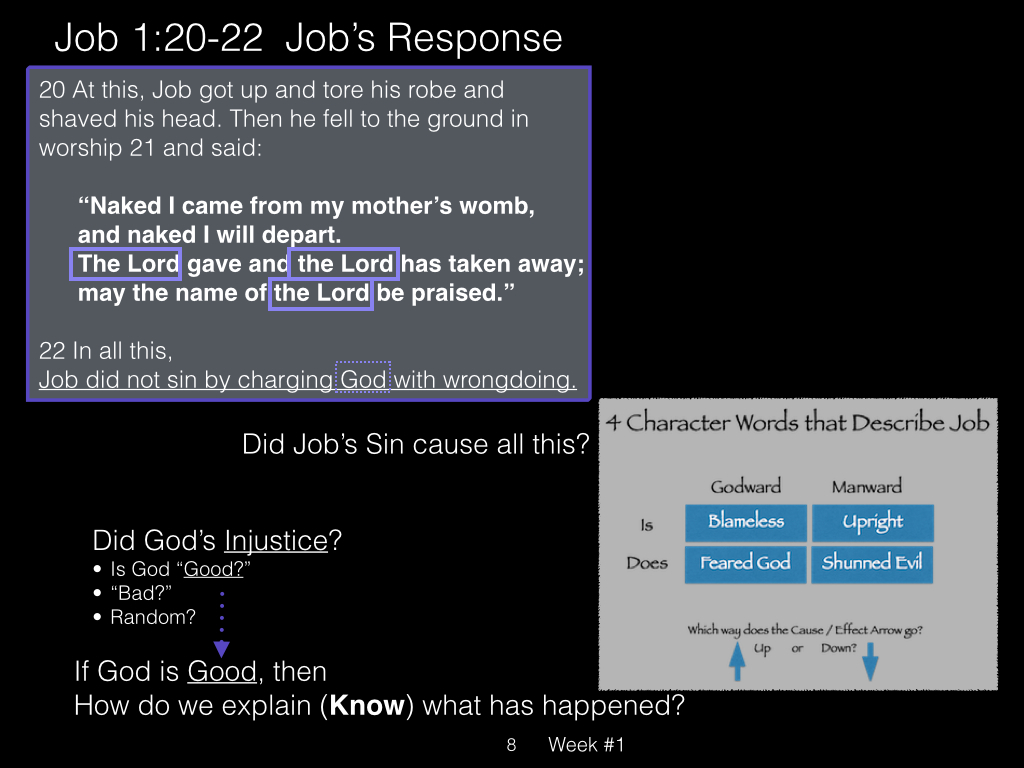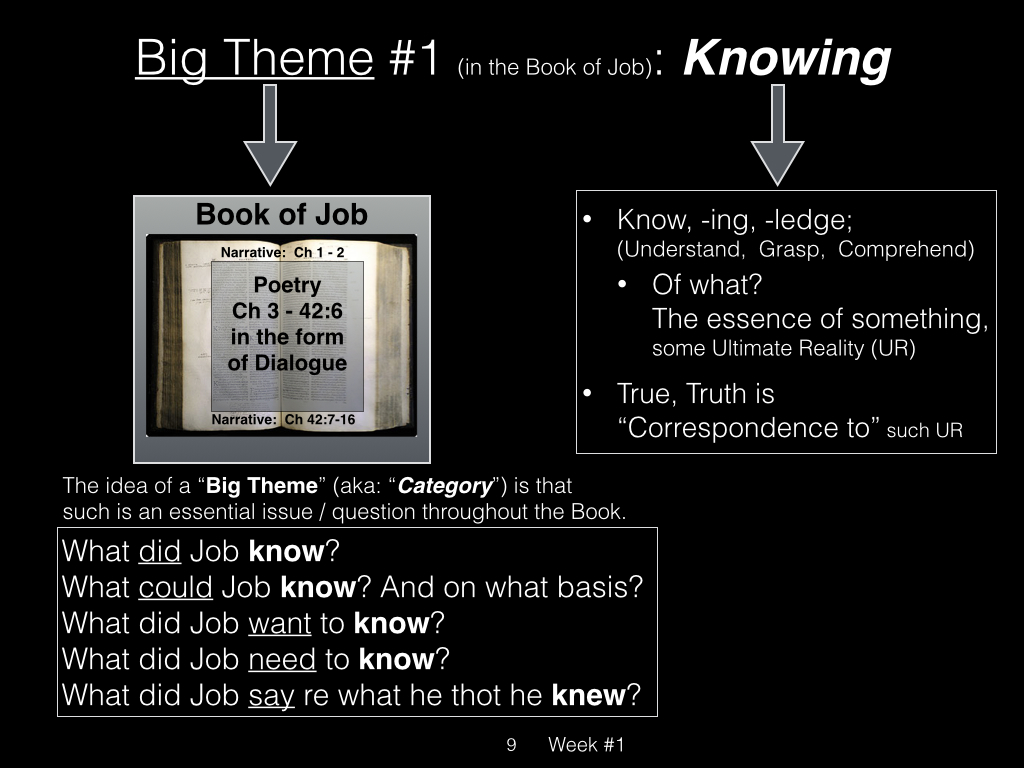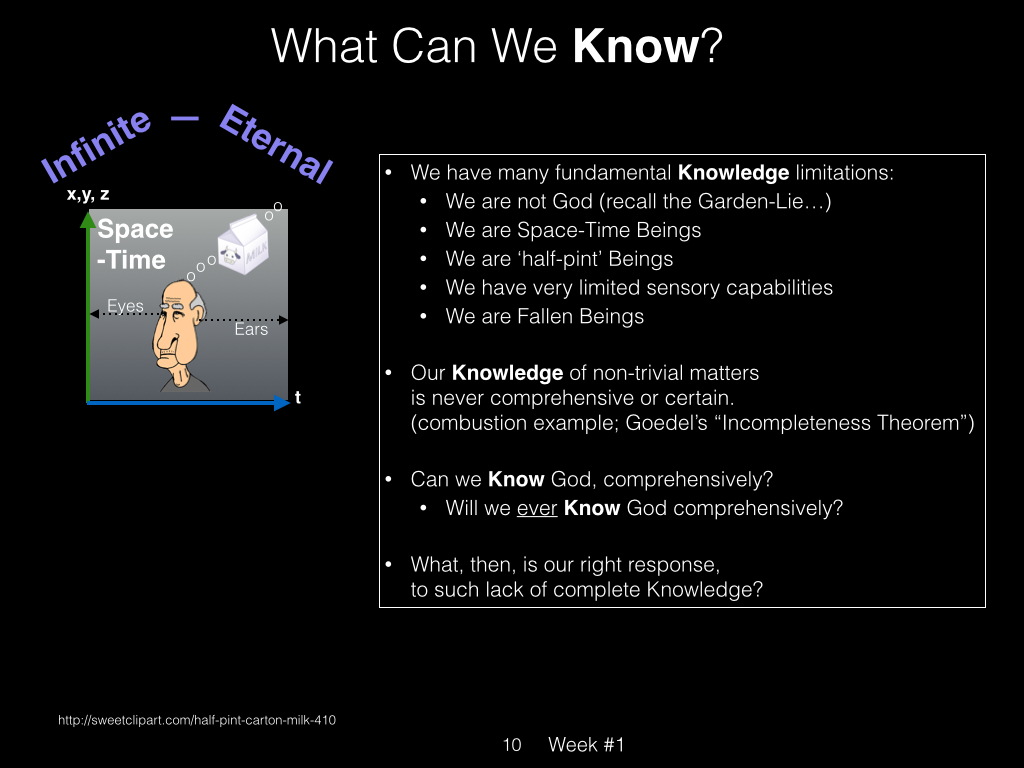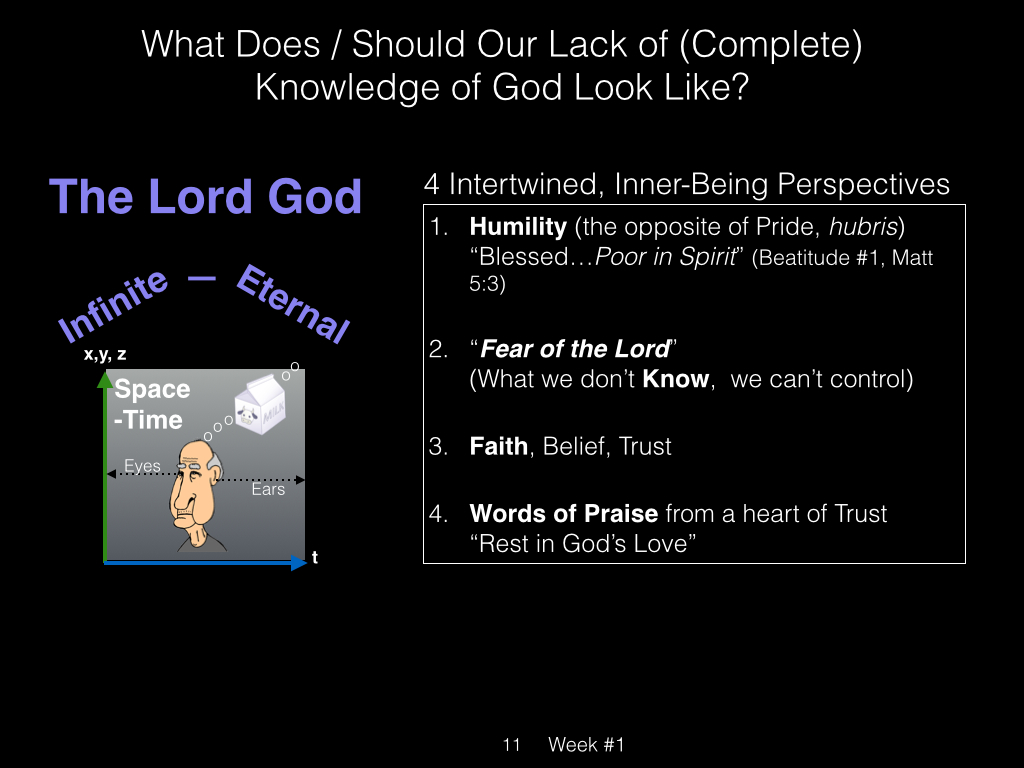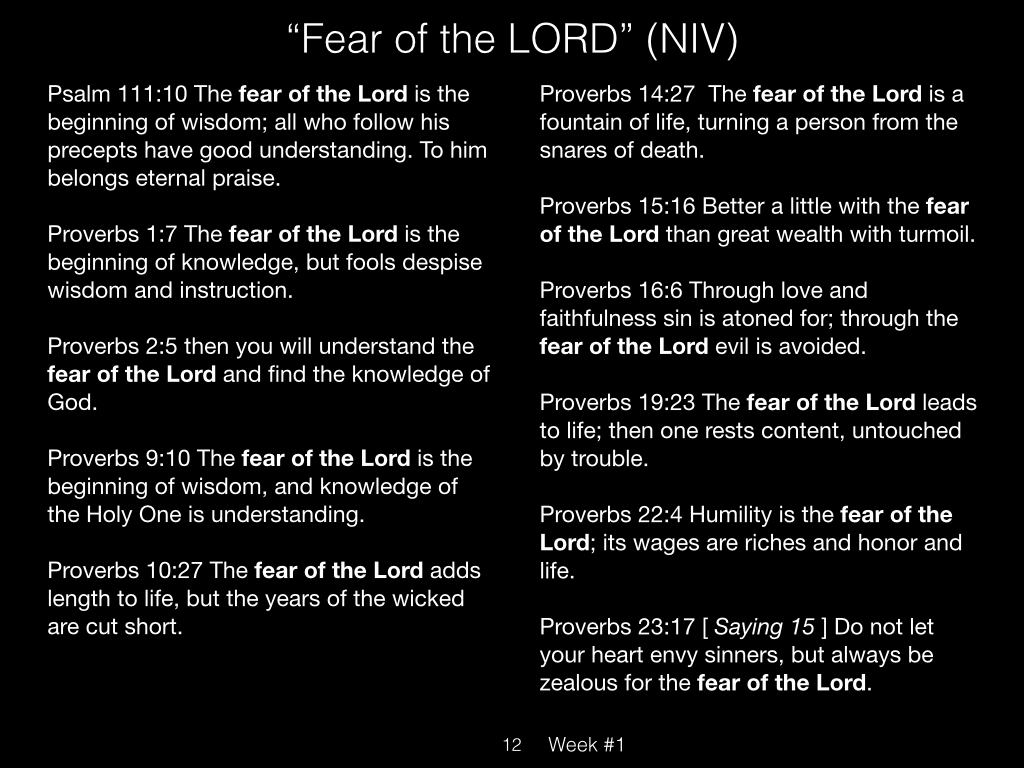Introduction to the Book of Job, and Job Chapter 1
Chart 4 (Below):
Connecting “Lord” as the word occurs in the New Testament (NT) with its use in the Old Testament (OT):
The Old Testament (OT) was written in Hebrew. It was translated into Greek about 200 years before Christ in a version known as the Septuagint, often abbreviated LXX. The Septuagint translation of the OT is frequently cited / referenced in the NT, so there is a sound basis for valuing the LXX.
The English word “Lord” in the OT is the translation of the Hebrew word which may transliterated YHWH name of God Himself, and is known as the “Tetragrammaton” (meaning 4-consonant word) YHWH is the holiest of words to orthodox Jews. The vowels that below with YHWH are unknown because, in the Jewish tradition, the word is so holy as that it is not appropriate for man to even utter it. In English tradition YHWH is translated as either Yahweh or Jehovah. Such use YHWH (Jehovah) occurs more than 5,000 times in the OT, all in reference to God, such as Genesis 2 when it is used of God in His acts of Creation of Adam and Eve in the Garden.
The LXX translators of the OT Hebrew into the OT Greek translated YHWH by the Greek work (transliterated) “Kurios.”
Finally, the Greek NT translators have uniformly translated “Kurios” by the English word “Lord.” (In certain translations this is further designated by using small caps for the “ord” of “Lord”).
So, we can make a direct connection between “YHWH” (Hebrew) with “Kurios” (Greek) with “Lord” (English).
Why is this important? One reason is that the word “Lord” occurs very frequently in the Bible. But more importantly it is the common name for God used in the OT, and it is the common name of Jesus in the NT, as in “the Lord Jesus Christ.” The key point is that the Bible claims that Jesus Christ is the God-man, who was / is the very same YHWH (Jehovah) of the OT.
You can research this by using freely available tools on the Interest. YHWH has a number, known as a Strongs Number, that provides an identification that can be used for study. Above the “YHWH” (“Yah-weh”) in the top left box below is the corresponding Strongs number, 3068. Entering H3068 in a search box in Google or other search engine–where the “H” is needed because we are searching for a “Hebrew” word–the search will lead you to definitions, citations, and other useful information for the word. Likewise, above the Greek word “Kurios” in the second-from-the-top box on the left is “2962.” Entering “G2962” (because this is a Greek word) in a search window will lead resource information on the Greek word translated “Lord.”
For next week’s study charts, click here.

